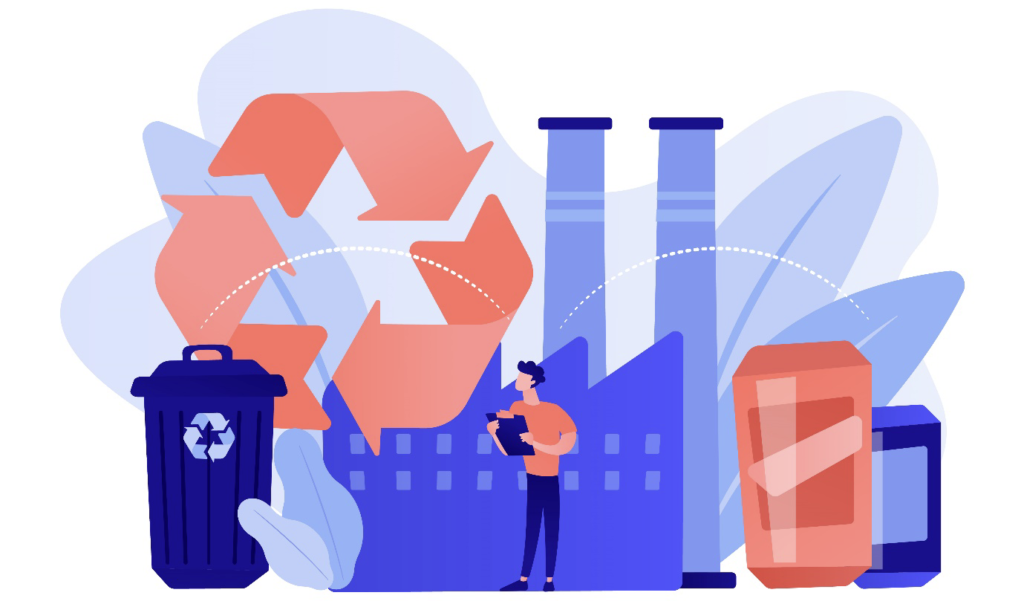
“Imagine a world where the companies that create the products, we use every day are held accountable for their impact on the environment. That’s the goal of Extended Producer Responsibility (EPR), a policy framework that assigns responsibility for the end-of-life management of consumer products to producers, importers, and brand owners. By incentivizing these parties to design products that are more environmentally sustainable and easier to recycle or dispose of, EPR has the potential to transform the way we deal with waste.”
EPR is not a new concept. It was first introduced in Germany in 1991 to address the problem of packaging waste. Since then, it has been adopted by many countries around the world for different types of products, such as electronics, batteries, tyres and textiles. In India, EPR was implemented for e-waste in 2012 and for plastic waste in 2016.
The need for EPR arises from the fact that India generates about 26,000 tonnes of plastic waste every day, of which only 60% is collected and 6% is recycled. The rest ends up in landfills, water bodies or open burning, causing severe environmental and health hazards. EPR aims to reduce this waste by making PIBOs accountable for collecting and processing their plastic packaging waste through recycling, reuse, or end-of-life disposal.
However, implementing EPR in India is not without challenges. Some of these include:
– Lack of awareness and compliance among PIBOs about their EPR obligations and targets
– Lack of infrastructure and capacity for collection, segregation, and recycling of plastic waste
– Lack of traceability and transparency in the EPR value chain
– Lack of coordination and cooperation among various stakeholders, such as PIBOs, waste management companies, government agencies and consumers
To overcome these challenges, the government has taken several steps to streamline and strengthen the EPR regime in India. Some of these are:
– Issuing guidelines on EPR for plastic packaging in 2021 that provide a clear roadmap for PIBOs to fulfil their EPR targets
– Developing a centralized online portal for registration and monitoring of PIBOs and plastic waste processors (PWPs)
– Introducing a system of EPR certificates that can be generated and transferred by PWPs to PIBOs as proof of their EPR performance
– Levying environmental compensation on PIBOs who fail to meet their EPR targets
These measures have created a conducive environment for EPR to flourish in India. They have also opened up new opportunities for waste management startups like Zecomy to play a vital role in bridging the gap between PIBOs and PWPs. Zecomy as a digital platform connects PIBOs with verified PWPs across India and helps them fulfil their EPR obligations in a hassle-free manner. Zecomy also provides end-to-end solutions for plastic waste management, such as collection, transportation, recycling, and disposal.
EPR is not just a regulatory requirement; it is also a strategic advantage for PIBOs who want to enhance their brand image and reputation as responsible corporate citizens. By adopting EPR, PIBOs can demonstrate their commitment to sustainability and social responsibility, which can boost their customer loyalty and market share.
EPR is also a catalyst for innovation and a circular economy. By embracing EPR, PIBOs can rethink their product design and packaging to make them more eco-friendly and resource-efficient. They can also explore new ways of using recycled plastic as raw material or creating new products from plastic waste.
EPR is the crucial link in the sustainability chain that connects producers, consumers and waste managers. It is a win-win solution for all stakeholders involved. It benefits the environment by reducing plastic pollution and greenhouse gas emissions. It benefits the economy by creating jobs and value from waste. And it benefits society by improving public health and well-being.
If you are a PIBO who wants to join this sustainability movement and fulfil your EPR obligations with ease and efficiency, contact us today at Zecomy (https://ecoemarket.com/). We are here to help you bridge the gap and make a difference.

